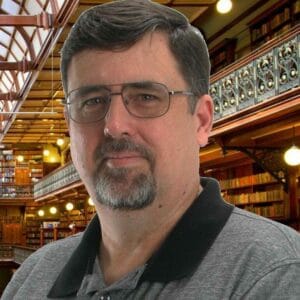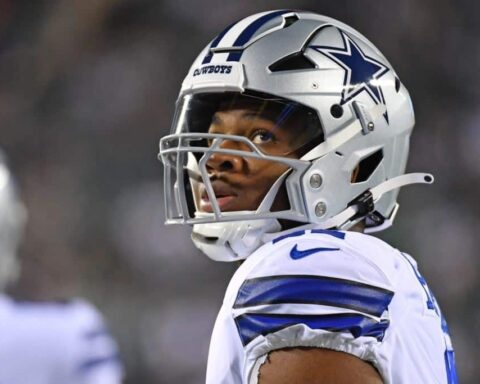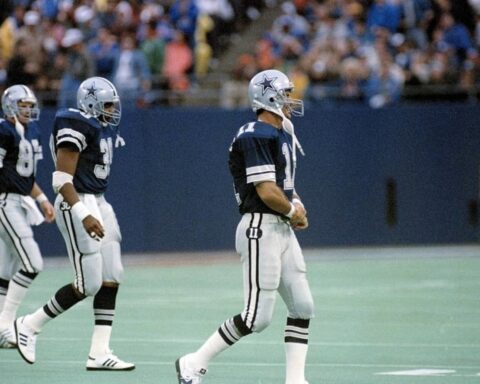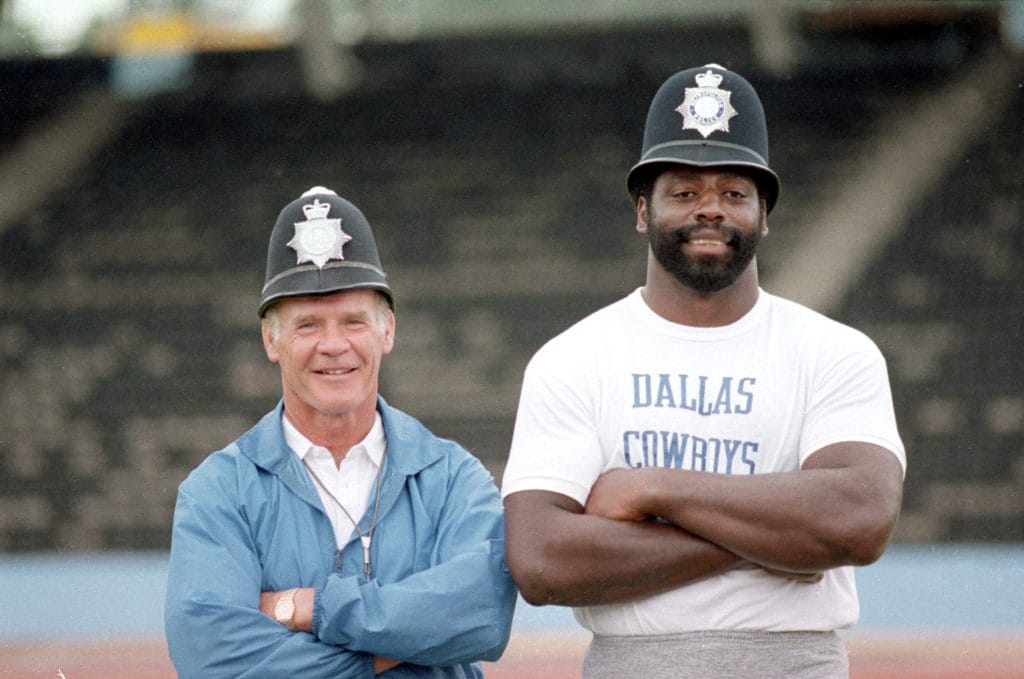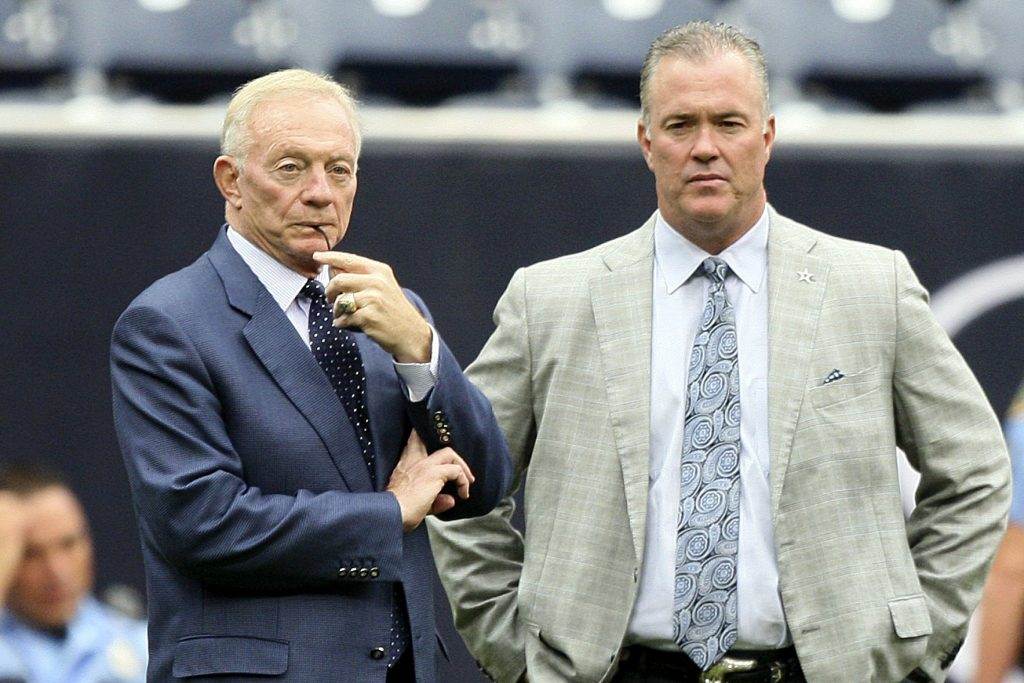With the 1984 season approaching the Cowboys were at the end of an era.
They had made the playoffs in the previous nine seasons. But the 1983 season has ended with a wild card round loss to the Rams.
Adding to the misery, Dallas had advanced to three straight NFC Championship games in the early 1980s but had fallen short of the Super Bowl in all three.
As the 1984 Draft – and the new season – approached another era would end. Clint Murchison sold the team to a partnership led by Bum Bright.

Bright’s tenure as owner would see the franchise decline – making the playoffs only once in his five-year run as owner and losing the only playoff game they appeared in.
Part of the reason for the Cowboys’ downfall was their drafting. Once the organization’s strongest suit, they started missing far more than hitting in the draft.
The 1984 NFL Draft was a prime example.
Billy Cannon Jr.
The son of the 1959 Heisman Award winner and an 11-year star in the AFL, it seemed a slam dunk for the Cowboys to take Billy Cannon Jr. with the 25th overall pick.
A standout linebacker at Texas A&M in his own right, the Cowboys had to feel they were set for the long term. But the younger Cannon’s career would only last eight games in 1984.
On Oct. 21st, in a 30-27 overtime win against New Orleans at Texas Stadium, Cannon tackled Saints running back Wayne Wilson.
Wilson got up after the hit. Cannon didn’t.
Not only had the hit knocked out Cannon, it also damaged two vertebrae near his neck. For a brief time, he could not move his arms or legs.
The tackle had aggravated a previously-existing congenital spinal condition. Cannon’s playing days were done.
He retired to avoid risking permanent paralysis.
A lawsuit was filed by Cannon – claiming he had told the team of symptoms of numbness when making tackles — and was settled in 1992.
Victor Scott
The Cowboys got a better return on investment out of their second round pick.
Defensive back Victor Scott out of Colorado would play five years for Dallas.
He would not return when the team was sold to Jerry Jones and Jimmy Johnson began cleaning house in 1989.

Scott suited up in all 16 games in each of his first two seasons. He even started three games in 1985.
The 1985 season was his best in Dallas. In addition to the three starts he would record three sacks.
He also picked off two passes – including one he returned for a 26-yard touchdown in a season-opening 44-14 win at home over the Redskins that year.
For his career he would play in 45 games, with just the three starts in his second year. He had five interceptions, three fumble recoveries and the three sacks.
He did not play anywhere else in the NFL after the 1988 season.
Steve Pelluer
Dallas took tight end Fred Cornwell – who lasted two seasons and gave Dallas a total of two touchdowns on eight catches – in the third round.
They followed up with Steve DeOssie in the fourth. He would leave after the 1988 season with three starts in 59 games and 70 tackles.
In the fifth round they tried to get Danny White’s replacement and turned to Steve Pelluer out of Washington.

Pelluer would wrest the starting quarterback job away from White on three different occasions. But he never could keep it.
In his five seasons in Dallas, he would start 27 games out of the 47 he suited up for.
He finished with an 8-19 record. He threw for 6,555 yards and 28 touchdowns.
He also tossed 38 interceptions.
He spent his last two seasons in the NFL with Kansas City and did not play in the NFL after the 1990 season.
Eugene Lockhart
Nicknamed “The Hitting Machine”, the Cowboys selected Eugene Lockhart out of the University of Houston in the sixth round.
He would be the best pick the Cowboys made out of their 15 picks that year.
Lockhart would play for seven years in Dallas, becoming the full-time starter at the beginning of his second season. He would play his final two years in New England.

But during his time in Dallas he started 96 of the 104 games he played in at middle linebacker.
Recording 16 sacks, he also recovered 10 fumbles. His 40-yard return of a fumble gave the Cowboys a temporary 13-10 lead in what was a 31-13 loss to the Packers in 1989.
Lockhart had six career interceptions – including a 19-yard Pick Six in a 27-13 win over the Steelers in 1985.
The 12th Round Reach
The Cowboys 15th – and final — pick in 1984 came in the 12th round.
They drafted Carl Lewis, a receiver out of Houston. They were trying to recreate the magic of the 1964 Draft when they took Bob Hayes.
Like Hayes two decades earlier, Lewis spent 1984 getting ready to win gold medals in the Olympic Games.

Lewis collected four gold medals in Los Angeles in 1984. He would win five more over the next three Olympic Games in Seoul, Barcelona and in Atlanta.
But, unlike Hayes, Lewis had no interest in playing football and never saw a down in any football league.

